This page contains some affiliate links. Please review my disclosure policy.
A couple of weeks ago I was invited by Stonyfield Organic to come out to some Northern California farms to explore the world of organic food (and then some!) and why it really matters. To be honest, I wasn’t really sure what to expect. I’ve explored the avocado farms of Mexico and the orange groves of Florida. I’ve seen where coffee comes from in Guatemala and eaten more hummus than previously believed possible in Israel. Those experiences were all super cool, but this tour was not only incredibly cool but also SO enlightening. I left the two day trip feeling more knowledgable, positive and empowered to make a change. I just needed a little extra time to figure out how…
Which brings us to today’s post. Does organic really matter? It’s a loaded question and one which I am willing to tackle today. It’s a complex issue that starts in the fields and moves up into government policy makers, but ultimately I truly believe it falls in our hands to demand the change. My hope is that I can inspire you to be an advocate for that change – a privilege which Stonyfield imparted on me.
During one of our long bus rides from one farm to another, I asked Stonyfield CEO Gary Hirshberg: “What’s in it for you?” It’s not like we were visiting dairy farms and spending two days learning about yogurt making. His answer blew me away (and can we acknowledge the fact that the CEO was riding on the bus with us for the entire trip?! That NEVER happens!). He looked at all of us women and influencers and reminded us the power we have to use our platforms for good. He feels similarly about Stonyfield. If he can get more people to switch to organic yogurt, great! But the goal of Stonyfield reaches so far beyond yogurt. We need to make some massive changes to our food system if we want to see our planet survive. There will be no Stonyfield, or The Healthy Maven or even organics if we continue our current farming practices and use of herbicides and pesticides.
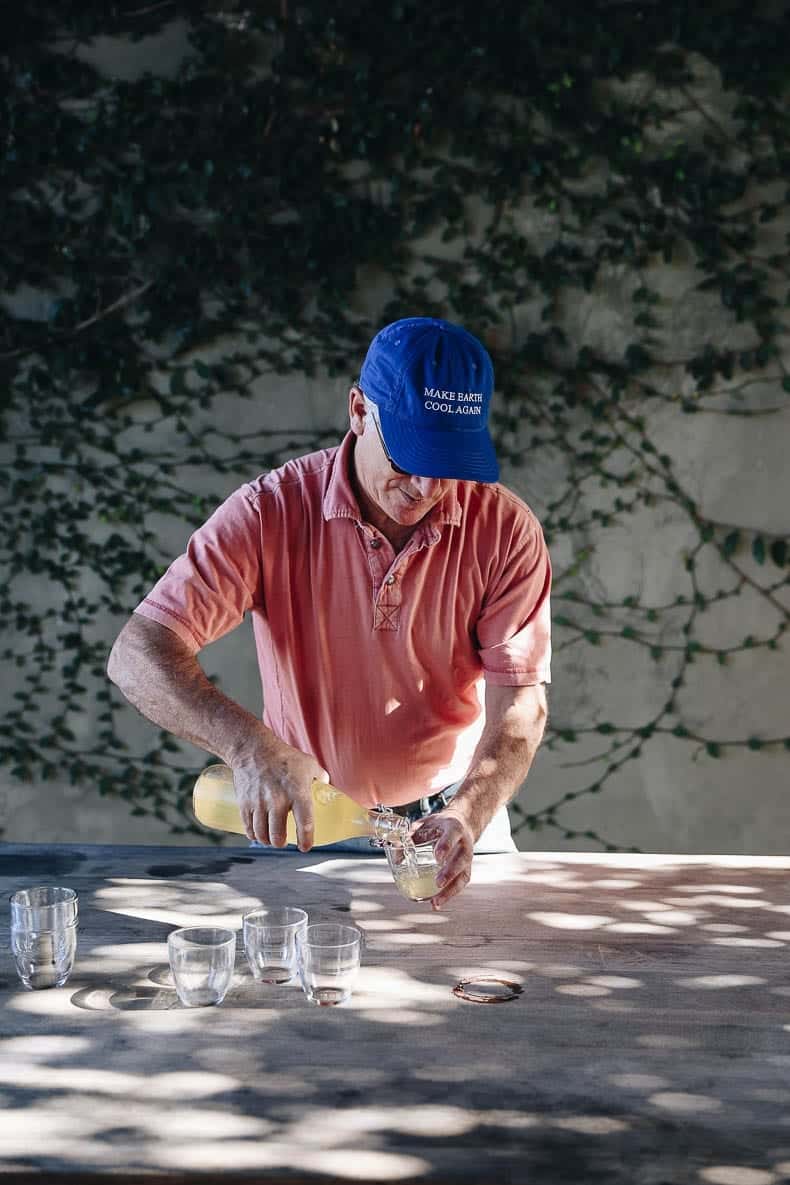
That’s why we were invited there and that’s what I’m going to be talking about today…
DOES ORGANIC REALLY MATTER?
Simple answer? Yes. It matters both for your individual health and the health of the planet.
Though still up for debate on the nutrition-side, there is no arguing that organic food has substantially lower levels of heavy metals and chemicals due to the lack of pesticide-use. Pesticides have been linked to Leukemia (source) and Parkinson’s disease (source). More research is needed to further explore this issue, however most of these pesticides have been approved for use in small quantities. The reality is that they are not being used in small quantities, and we are not consuming them in small quantities. On top of this, by using pesticides, we’re actually depleting the phytochemicals present in plants that actually help them build up resistance to bugs and weeds. This has massive impacts on our health as well as the health of the planet.
Long-term pesticide use leads to depleted soil, huge impacts on the bee population (who we need for pollination) as well as harmful pollutants in the air. This is on top of the heavy use of antibiotics and hormones in our livestock. All of this means the quality of our conventional food is decreasing. There’s proof that the dairy from organic cows is actually 25% higher in Omega-3s than traditionally raised cows (source).
The sad part is that the jury is still out. Not enough research has been done to prove all claims but in the process we’re making our food less nutritious and chronic disease is only increasing. So to answer the question, in the short-term it may not seem like it matters, but in the long-term it does and the long-term is right here, right now.
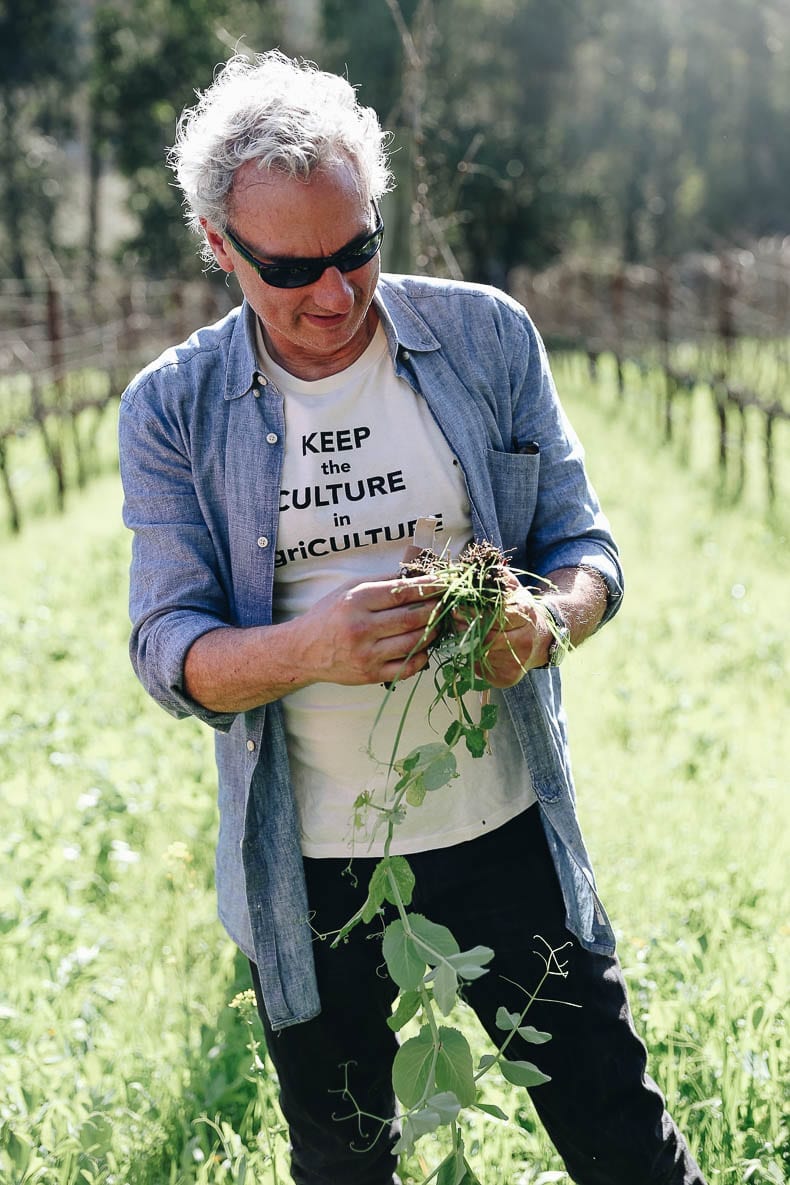
YOUR ORGANIC QUESTIONS ANSWERED
So I asked you guys to hit me with your questions about organics and buying organic. To be honest, I wasn’t expecting as many questions as I got but I’m glad you sent them along. It really helped me gage exactly where people are at when it comes to this topic. As always, this is just the tip of the iceberg but I hope you find these questions/answers helpful.
What’s the difference between organic and conventional farming?
Organic farming means that plants (fruits, veggies, grains, textiles) are grown without the use of pesticides and artificial fertilizers. For meat and dairy, they are fed a diet consisting of organic food and are not given antibiotics or hormones. Conventional farming has access to all approved herbicides and pesticides for growth purposes. Some synthetic substances have been approved by the USDA but they are very minimal and have limited use. Here is a list of approved substances for organic certification according to the USDA. Organic farming also supports more sustainable growing practices and crop rotation meaning the soil itself is healthier and therefore the food is more nutritious. I could go into more detail but this is the gist of it.
What’s the difference between organic and non-GMO?
A good way to remember it is that certified organic NEVER uses GMOs. Non-GMO does not necessarily mean organic. If a product is USDA Certified Organic, GMO seeds are prohibited as are the use of pesticides and fertilizers. However, Non-GMO certified means that the crop has been grown from non-GMO seeds but they can still you pesticides and fertilizers to grow the plant. You’re always better off buying certified organic but non-GMO is a good start.
*I’m adding my personal opinion in here: I don’t believe GMOs are inherently bad. In many ways they’ve helped us produce more food in areas of the world that need it. The problem with GMOs is that they’re almost always used in conjunction with herbicides (particular Roundup/Glyphosate) which are harmful to the environment and our health. Research has not been conclusive in this, but the main issue is that glyphosate has been approved in small quantities. The problem is that we’re not consuming it in small quantities. This is my personal opinion as to why organic is better than non-GMO.
What’s the difference between organic and grass-fed?
This was a popular question. The short answer: Both are good for you and much better than conventional beef. Grass-Fed beef means that the cow is free to graze on the land it lives on and eat the grass, weeds, plant-life etc…Organic beef may be grass-fed but according to USDA organic standards, they don’t have to be grass-fed year round. The animals must be free to graze for a certain amount of time, but can also be fed an organic grain-fed diet. The downside to grass-fed is that the land *could* be sprayed with pesticides (though not likely since cows eat the weeds) and *could* be given hormones or antibiotics (though much more rare in grass-fed). The downside to organic beef is that they may not be free to graze year round and may be grain finished. The upside is that both systems make for healthier cows overall and are much better for us and our environment.
What’s the difference between organic and all-natural?
Put simply: All-natural is a marketing term that holds little value. The definition of “all-natural” varies so much. Some people consider this free of artificial ingredients, others will still include synthetics. If organic is important for you, don’t fall for this trap. Look for the certified organic label or ask questions (more on this below).
How do I know if something is actually organic?
This is a tricky question. A tell-tale sign that something is organic is having the certified organic label on the packaging. However, something can be organic and not have the label. Some farmers can’t afford the certification and as we discussed a lot of on the trip, farmers are often so preoccupied on the fields that the paperwork required to get certified feels like too much of a hassle. If buying from a small, local farmer or your farmer’s market, ask questions! Ask them how they grow their fruits and veggies or raise their meat/dairy. Oftentimes they are using organic farming practices but don’t necessarily have the label.
Why is organic more expensive?
Short answer: The government minimally subsidizes organic food production. They do provide some support to farmers seeking organic certification and some organic farming research, however compared to the $15 Billion set forth in the Farm Bill to support conventional farmers, compared to less than $100 million for organic farmers and research. Only 1% of farms in the US are organic certified and with so few subsidies, there just simply isn’t enough incentive there for farmers to adopt more sustainable farming practices. So now it really comes down to government and our elected officials having a more active role in increasing subsidies for organic farmers.
Here’s another way to think of it: We’re either paying for it now or later. We can pay the cheaper prices for conventional food and pay higher premiums for our healthcare later. For me, the moderate price difference between a conventional and organic apple over the course of my lifetime will hopefully be less than what I might have to pay for the health issues I might develop from eating all conventional my whole life. There is no denying that organic is food is better for you (source) so I’d rather invest in preventative medicine than treatment protocols. Again, this is an option for you to weigh for yourself.
Do I need to eat ALL organic?
In an ideal world, yes. We should support sustainable farming methods so that we have a planet that will continue to nourish us. That being said, this is not affordable or accessible to a lot of people. So my main piece of advice is this: start with what you can. The Dirty Dozen and the Clean Fifteen is a great place to start. The Dirty Dozen are the fruits and vegetables with the most pesticide contamination (aka buy organic when you can!) and the Clean Fifteen are the fruits and vegetables with the least pesticide contamination (aka ok to buy conventional if you’re not eating solely organic). That’s where I started and have slowly started to transition into almost all organic. It’s about progress, not perfection.
Do I need to buy organic skincare/bodycare products?
Similarly to above, this is ideal, but not always necessary. Our skin is the largest organic in/on our body so it makes sense that if we care what we put in our body, we should also care what we put on it. I’ve switched to synthetic-free skincare and body care products, however not all are organic. A lot of this is due to the fact that they are small producers who can’t necessarily afford organic certification. Better to start somewhere.
Do I need to buy organic house cleaning products?
I don’t think this answer will surprise you, but yes…if you can. Like food and skincare, you are interacting with your home everyday. One touch of your counter will not have an effect but repeated exposure of synthetic chemicals over the course of your lifetime does. I don’t personally use all organic cleaning products but they are chemical-free. Apple cider vinegar + essential oils is an amazing cleaning solution that you can make at home and is actually cheaper. Stay tuned for a tutorial!
Where do I start?
Do I think you’re better off choosing 100% organic? Yes, I do. However, I also know that this isn’t realistic or accessible for most people. So my best advice for you is to do exactly what I’m doing, the best that you can with what you have. Try your absolute best to purchase what you can in organic. Encourage your friends and family to do the same. Encourage your policy makers to care about these issues. Support your local farmers. There are so many ways to get involved. More on that below!
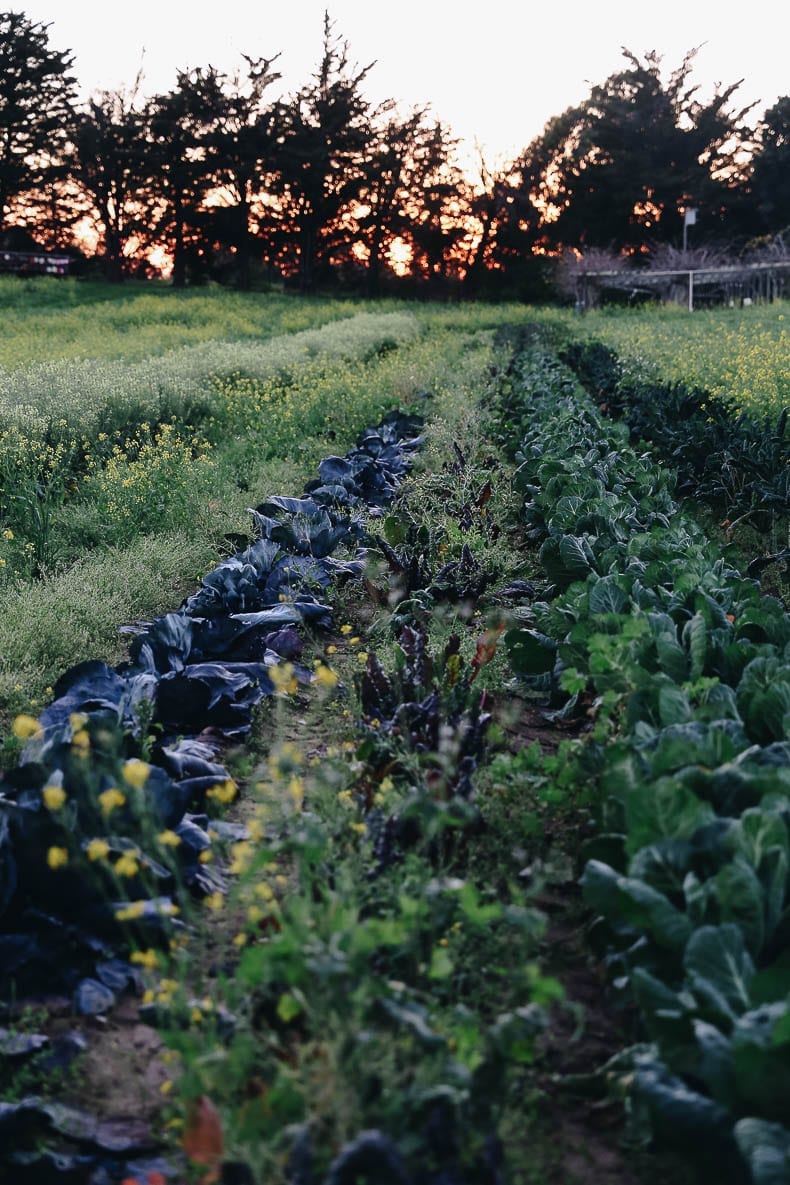
* * * * *
If I’m being completely honest, this feels like a topic that could never be captured in a single blog post. The question of organics is not one that I’ve shied away from or avoided here on The Healthy Maven. I’ve made it clear many times over that I mostly choose organic products. I have a history of going to extremes so approaching this topic from a more moderate stand-point has made it more accessible and sustainable for me.
I’m not someone whose clothing is exclusively made from hemp, washes their face with coconut oil and reaps what they sow. If this is you, more power to you! This just isn’t sustainable in my life and truthfully would take away a lot of joy and happiness in living. In my world, healthy must meet living.
Over the past couple of years I’ve started to dabble more in the world of organics. I almost exclusively buy organic food for our home (except those Dark Chocolate Peanut Butter Cups from Trader Joe’s!), use mostly organic house cleaning products and some organic skincare. I have not even begun to tackle the world of organic textiles but it’s something I’m open to. If I’m out and forget to bring a snack, I’d rather eat something that isn’t organic than nothing at all. I’m not afraid of non-organics, but I’m choosing to vote with my dollar in the best way I can. Now that I’m so much more aware of how deep and high the problem goes, I am also more aware of my points of entry. I think twice before buying a fast fashion garment and I always order organic from my Imperfect Produce box and get my grass-fed meat and organic chicken from Butcher Box.
I also want you to remember that even if you can’t afford or access all organics, know that there is so much power in your voice. Ask your grocery stores to carry more organics, use your social media platforms to talk about the importance of preserving our soil or better yet, WRITE TO YOUR REPRESENTATIVES. Get educated about what your regional politicians support so if you can’t vote with your dollar, vote with your vote!
Lastly, a huge thank you to Stonyfield Organics for this incredible opportunity to learn from some of the best in the organics world. I’m truly so grateful and hope that I can make you proud!
Disclaimer: This post is sponsored by Stonyfield Organic. I was compensated for my time, however all opinions expressed are 100% my own. Thank you for supporting the brands that help make THM possible and answer even more important questions like this.
Interesting in learning more about organics? Here are a few resources for you:
Megan Faletra (The Well Essentials) – Registered Dietitian, MPH and sustainability wizard. She’s my go-to resource for how to take lead a more sustainable lifestyle in a realistic and attainable way.
Melody Meyer (Organic Matters Blog) – Vice President of Policy at UNFI and has worked in the organic food space for 40+ years. When it comes to food policy in this country, she’s an incredible resource.
Rodale Institute – a non-profit dedicated to organic farming research. Rooted in science, the research they produce has been key in answering all the questions above.
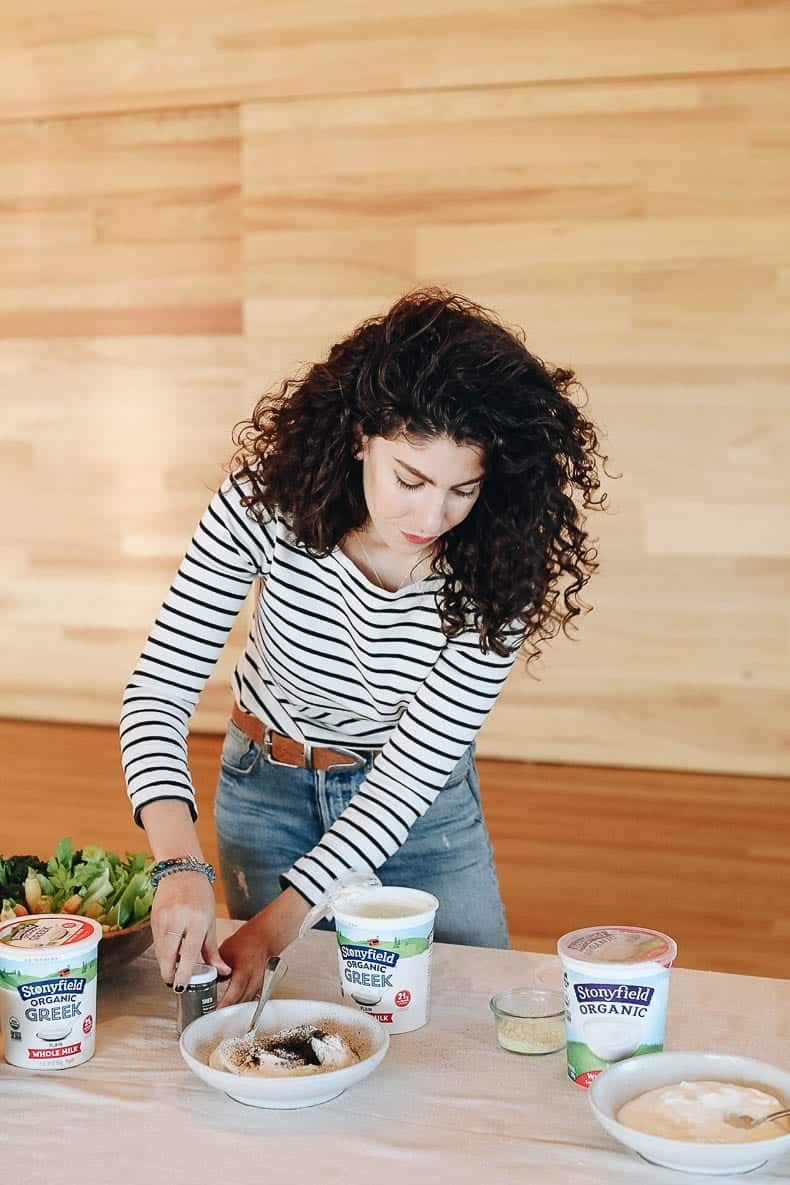
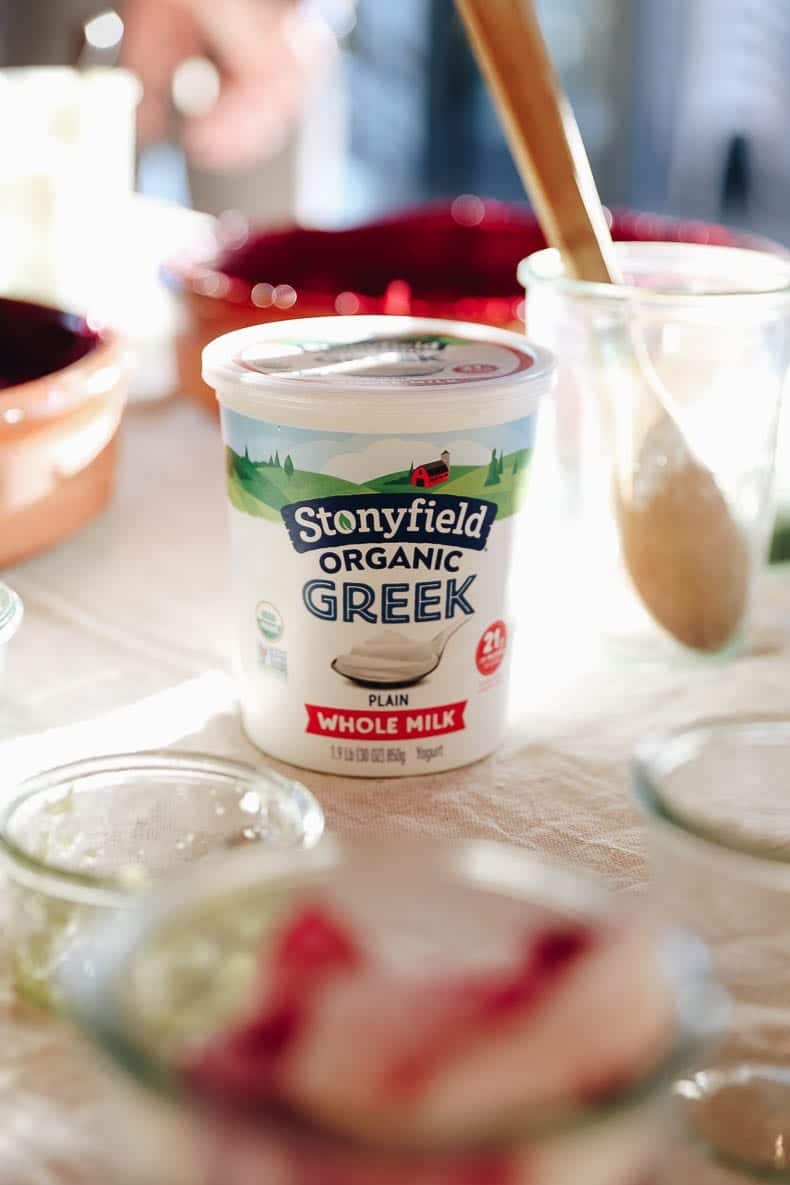

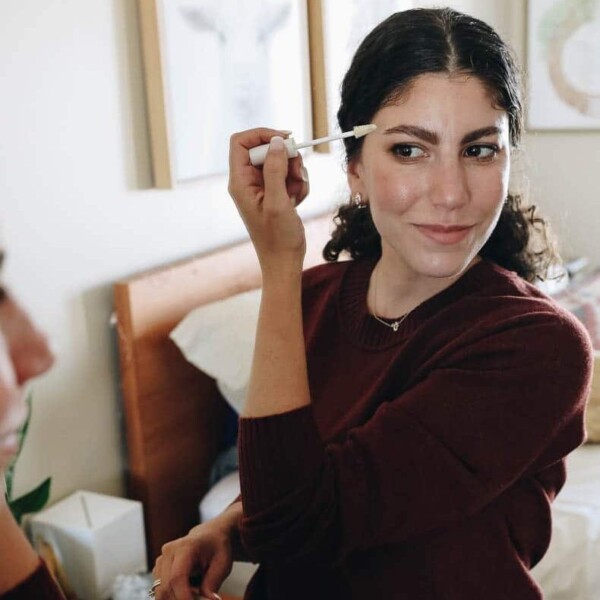
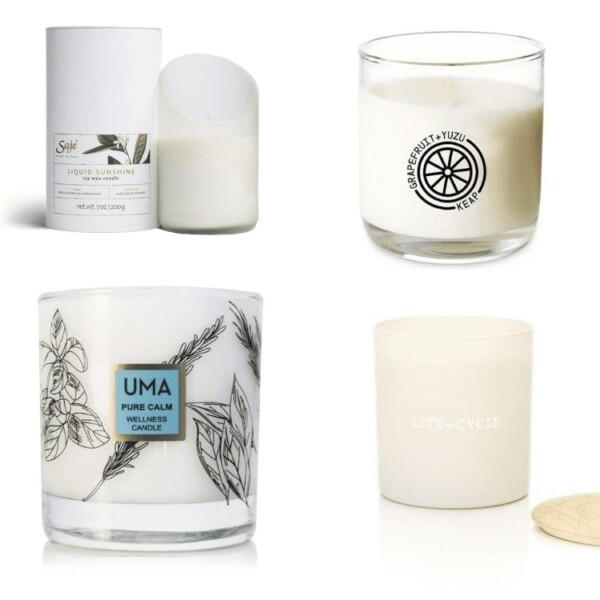
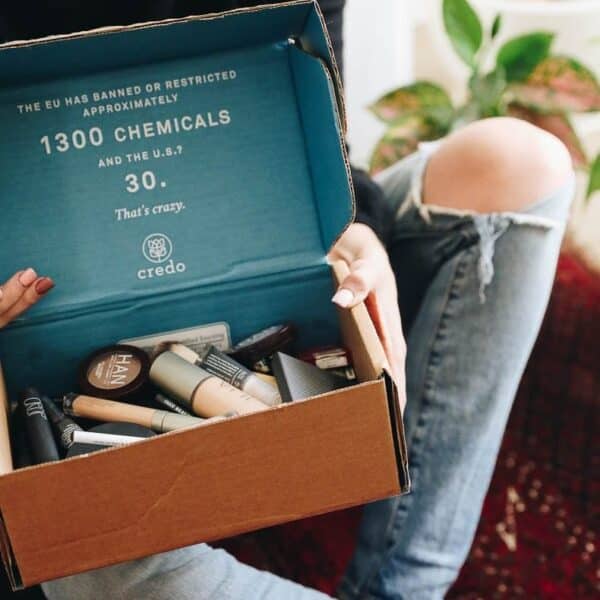
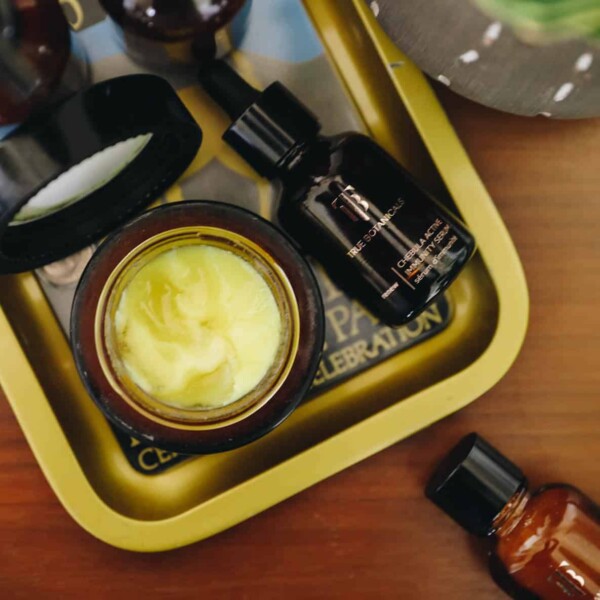





Great post!!! Way to get down to the details! I appreciate it!
http://Www.themilestraveled.com
Thanks, lovely!
I’ve been buying organic bananas for a while now, ever since I heard a piece on the radio talking about how much pesticides are used on conventional ones (due to the genetic corner we’ve put ourselves in on that front) and how that impacts the farmers and land. I’ll get organic citrus when I’m having to use rind in any way, and sometimes I’ll get other organic vegetables if the price isn’t outrageous. I hadn’t been putting much consideration into the long-term environmental impact of conventional farming practices, but I feel it weighing on me now. You’ve convinced me here to switch to organic milk for my yogurt-making, though I’m cringing a little already at the price… But even still, I am selfishly only thinking of the benefits I can reap from the transition and not the environmental good I’ll be promoting…
Sherwood! That’s wonderful that this post has helped you gain some perspective on the environmental impact. I too didn’t realize how bad it was. Of course we have to weigh all of our decisions but knowing the long-term impact definitely has helped me make more conscious decisions in the short-term. Thanks for your reply!
Hi Davida – I want to thank you for your post and all the information you provided! I generally agree with you that eating foods devoid of chemicals is better for your health; however, there are a couple statements that you make in your post that I want to clarify.
First is your sentence, “Organic farming also supports more sustainable growing practices and crop rotation meaning the soil itself is healthier and therefore the food is more nutritious.” To my knowledge there is absolutely no evidence that this statement is true. I grew up on a farm in Minnesota and, every single farmer I know uses crop rotation and sustainable growing practices on their crops. Depleted nutrients in the soil leads to a poor crop, which leads to a poor harvest season. Like organic farmers, conventional farmers’ goal is to produce a large crop and make money. A conventional farmer would not subscribe to practices that would lessen their harvest. I don’t know one single farmer who doesn’t rotate their crops from year to year.
Second, in answering the question about the difference between organic beef and grass-fed beef, you state, “Both [organic and grass-fed] are good for you and much better than conventional beef.” Now, I’ not trying to argue the merits of organic vs. grass-fed vs. conventional farming. However, I just want to note that conventional fed animals are not consuming a diet primarily of grain (i.e. corn) as most believe. Most of a conventionally farmed animal’s diet is made up of forage, either grazing (eating grass in a pasture), dry (i.e. hay) or wet (i.e silage). What makes it conventional farming and not grass-fed is the inclusion of grain into the diet. However, typically an animal gets only about 5 pounds of grain per day, depending on the type of forage they are fed. A cow consumes 2% of their body weight per day (average cow weighs 1,200 pounds, which means they are consuming about 24 pounds of food each day) so grain consists of only about 20 percent of their diet, even in conventional beef.
Know that I am not trying to be combative – I just grew up in a place where farming is a way of life. And, when people think of conventional farming they think of huge factory farms where the animals are mistreated, dirty, in extremely small pens, etc. And, in practice, factory farms make up only a very small portion of all conventional farms and that is absolutely not how most conventional farms operate. They are small, family-owned businesses who treat their animals with the utmost respect. So, all I want to do is dispel a few of the misconceptions that exist about conventional farming.
As a side note, ironically I grew up on a grass-fed beef farm, not a conventional farm. My father also didn’t use antibiotics or hormones on his beef cows, but the process to become certified-organic is lengthy so he opted to not go through the process and maintain his grass-fed status without the organic label.
Hi Alissa!
Not combative at all! I’m always open to discussion and actually agree with most of what you said! I think where things may be misinterpreted is that I don’t mean all conventional farming is bad – I agree that most are small family farms doing the best they can and some using organic practices but just simply can’t afford or have the time to get organic certification. Interestingly, what we learned on our trip is that the cost is rarely the barrier to entry. The government actually subsidizes farms wanting to get their organic certification. The biggest issue is that farmer’s are so busy on their fields they just simply don’t have the time or energy to deal with the paperwork, which is totally understandable!
The reason I encourage organic is not because all conventional is bad, it’s that there are strict rules and regulations to USDA organic which ensure practices like crop rotation, no use of pesticides and herbicides and no antibiotics or hormones used in livestock. That’s not to say that there aren’t conventional farmers out there using these practices, it’s just that because there are some who aren’t, you can’t always be sure. There are also ways to crop rotate that don’t necessarily leave enough time to benefit the soil. Things like buckwheat for example is a cover crop that has a short cycle so it’s one way to cover but it’s only a 6 week rotation so definitely not enough time to replenish the soil.
Again, not here to say all conventional is bad, it’s just that there’s so much misinformation and so many big dogs doing unhealthy things to our crops and livestock that they kind of ruin the game for all. Organic certainly isn’t perfect, but it’s better than what can *sometimes* be available.
Thanks for clarifying and let me know if you think there’s any wording specifically that would make things more clear! xoxo Davida
SUCH an informative and valuable post! Thank you for this. I usually do the Dirty Dozen and most cleaning products organic, but when I have my own income and am more self-sufficient I would definitely want to expand that list. Sometimes I think, meh an inorganic strawberry won’t kill me, but I think it’s more the issue of these little instances piling up and actually wreaking havoc on our planet and our health.